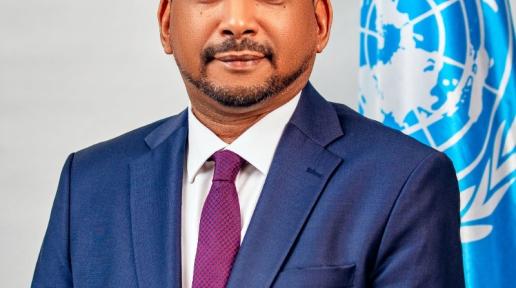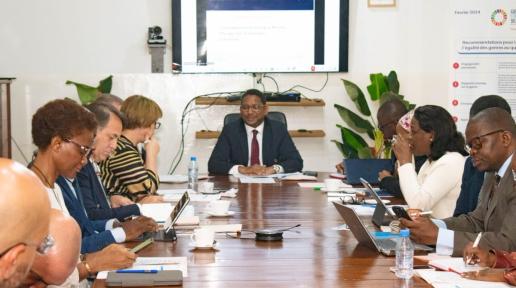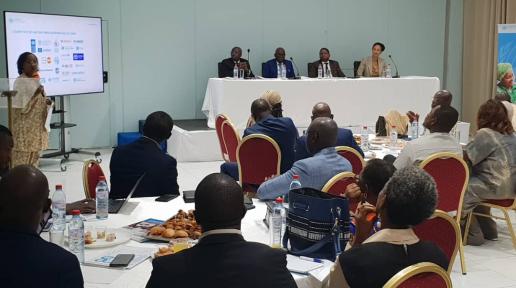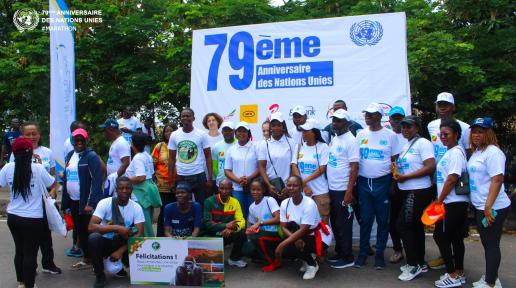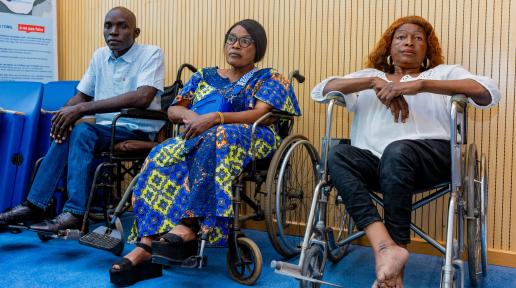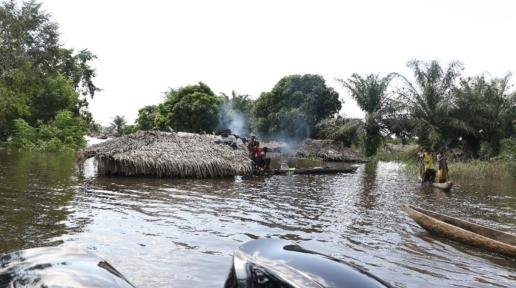Story
03 October 2025
The United Nations System stands in solidarity with the people of Mbamou Centre Island in the face of the cholera epidemic
Mbamou is currently the most affected area in the Brazzaville district, with ten confirmed cases in the group of islands out of the fourteen recorded in the capital.The United Nations Resident Coordinator in Congo, accompanied by representatives of the World Food Programme (WFP), UNICEF, UNESCO, and the World Health Organization (WHO), visited the island of Mbamou Centre in the Pool department to express the United Nations' solidarity with the populations affected by a cholera epidemic.This joint visit is part of the United Nations System (UNS) support to the Government of the Republic of Congo, in particular the Ministry of Health, in the ongoing response to the epidemic. The sub-prefect of Mbamou Island, as well as representatives from the Ministries of Health and Education, also took part in the mission.On this occasion, the delegation visited the village's primary school, where the new school year began on Wednesday, October 1. “The start of the school year is a big moment in the life of a country. It is an important exercise that allows us to take the pulse of the education system and, in fact, the pulse of the nation,” said Abdourahamane Diallo, United Nations Resident Coordinator in Congo. The representative of the United Nations Children's Fund (UNICEF), Ms. Mariavittoria Ballotta, distributed school kits and early learning kits to all children enrolled in the village school.On the health front, Dr. Vincent Dossou Sodjinou, Resident Representative of the World Health Organization (WHO) in the Republic of Congo, reminded everyone of the essential steps to prevent cholera, including regular hand washing with soap and water, in the morning when arriving at school and in the evening before leaving. He also stressed the importance of teaching children to apply these measures at home—before eating, after using the toilet, and before preparing meals—as well as to consume well-cooked food and safe drinking water. Mr. Diallo praised the remarkable work of the health workers mobilized in the field:“We have seen, we have heard, and we will do our best, under the leadership of the government and local authorities, to provide sustainable responses. This means putting in place lasting infrastructure, beyond crises, to respond structurally to epidemics,” he said.This mission reflects the United Nations System's commitment to supporting the Congolese Government in its efforts to protect the health and well-being of the population, while ensuring the continuity of education in a difficult context.

